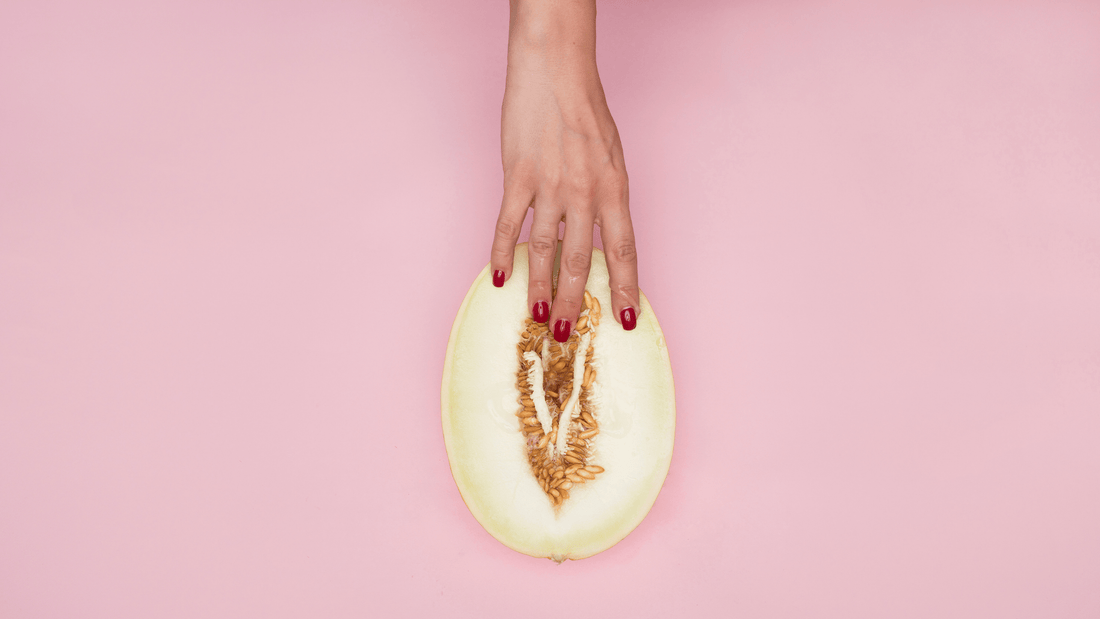
Why Self-Pleasure Isn't Selfish: Embracing Solo Play as Self-Care
Share
We often hear that taking time for ourselves is selfish—but when it comes to sex, that message can feel even stronger.
Many people grew up hearing that masturbation is dirty, shameful, or something to hide. Others worry that enjoying solo play somehow means they’re neglecting their partner or their “real” sex life.
But here’s the truth: self-pleasure isn’t selfish at all.
In fact, exploring your own body is one of the healthiest, most empowering acts of self-love you can practise.
This guide will show you why solo play is good for you, how it can actually improve partnered sex, and how to start embracing it without guilt.
Why We Think Self-Pleasure Is Selfish
Let’s be real: the idea that masturbation is “bad” has deep roots.
- Many cultures and religions taught that it was sinful or shameful.
- Sex education often skipped or condemned it.
- Even some relationships treat it as a sign of disinterest or betrayal.
These messages linger in our minds and bodies, making us feel:
❌ Guilty for wanting pleasure.
❌ Embarrassed to admit we do it.
❌ Anxious about sharing it with partners.
But those old myths don’t hold up to scrutiny.
The Truth: Self-Pleasure Is Normal and Healthy
Masturbation is a natural part of human sexuality.
✅ Almost everyone does it at some point.
✅ Doctors, therapists, and sexual health experts recognise its benefits.
✅ It has no “moral” failing attached—only what you want it to mean.
Some of the most respected health organisations in the world, including the NHS, acknowledge masturbation as a normal and safe sexual activity.

Benefits of Solo Play for Your Body and Mind
Far from being selfish, self-pleasure is a form of self-care with real benefits:
✅ Stress relief: Orgasms release endorphins and reduce tension.
✅ Better sleep: The relaxation after orgasm can help you drift off more easily.
✅ Improved mood: Solo play can combat anxiety, low mood, or emotional burnout.
✅ Pain relief: Some people find masturbation reduces menstrual cramps or headaches.
It’s a simple, accessible way to support your wellbeing—no prescription required.
Self-Pleasure Builds Body Awareness
Touching yourself is also how you learn about yourself.
✅ What feels good?
✅ Where do you like to be touched?
✅ What rhythm or pressure works?
This self-knowledge isn’t just for you—it’s a gift to any partner you share it with.
When you know your body, you can confidently ask for what you want. That’s not selfish—it’s empowered.
If you’re new to exploring, our Mindful Masturbation: Turning Solo Play Into Self-Love guide is a great place to start.

It Enhances, Not Replaces, Partnered Sex
One big myth? That solo play is “cheating” or suggests dissatisfaction.
In truth, masturbation can improve your sex life:
- Reduces pressure on partners to “perform.”
- Keeps desire alive between encounters.
- Offers a safe outlet when partners have mismatched libidos.
- Gives you language to share what you want.
Being sexually satisfied on your own often makes partnered sex more relaxed, intimate, and communicative.
For couples wanting to talk about it, our How to Talk About Masturbation with a Partner post has tips to open the conversation kindly and confidently.
Solo Play as Self-Love and Healing
Self-pleasure isn’t just about orgasm. It can be a healing, affirming ritual.
✅ Reclaiming your body after trauma or heartbreak.
✅ Building body confidence by shifting focus from how you look to how you feel.
✅ Giving yourself compassion and care, especially during stressful times.
This kind of mindful, intentional solo play says:
“I deserve to feel good. I am worth this time. My body belongs to me.”
If you’re navigating life changes, our Reclaiming Sensuality After a Breakup post offers gentle ways to reconnect with your body.

Sex Toys as Tools for Self-Discovery
Many people find that toys make solo play even more rewarding.
✅ They introduce new sensations.
✅ Turn exploration into a special ritual.
✅ Help you learn what you enjoy in a safe, private way.
They’re not “replacements” for partners. They’re tools for understanding yourself—so you can share that knowledge (or simply enjoy it) with more confidence.
If you’re curious, our Beginner’s Guide to Vibrators or Top Male Masturbators Under £50 posts are excellent places to find your first toy.
Pro Tip: Make It a Ritual
Want to move beyond “quick and secret” to “intentional and affirming”?
✅ Set the mood: soft lighting, music, warm sheets.
✅ Take your time.
✅ Use lube or toys to enhance comfort.
✅ Say affirmations: “I am allowed to feel good.”
Turning solo play into a self-care ritual makes it feel valuable—because it is.
❓ FAQ: Self-Pleasure Myths and Realities
Is masturbation unhealthy?
No. It’s a normal, healthy sexual behaviour recognised by medical professionals.
Won’t it make me lazy in bed?
No. It often improves partnered sex by reducing pressure and improving communication.
Is it selfish if I’m in a relationship?
Not at all. It’s self-care—and can help couples navigate libido differences or share fantasies.
What if I feel embarrassed?
You’re not alone. Cultural shame is real. Start small, be gentle with yourself, and reframe it as self-love.
Final Thoughts: It’s Not Selfish—It’s Self-Love
Masturbation isn’t selfish. It’s not shameful. It’s a way of saying:
“My needs matter. My pleasure is important. I deserve to know and care for myself.”
Whether you’re single, partnered, young, older, nervous, or experienced, self-pleasure is one of the most personal, accessible forms of self-care you can practise.
Ready to explore with intention? Browse our Solo Confidence Collection for beginner-friendly toys and guides designed to help you build a healthy, shame-free solo routine that celebrates you.